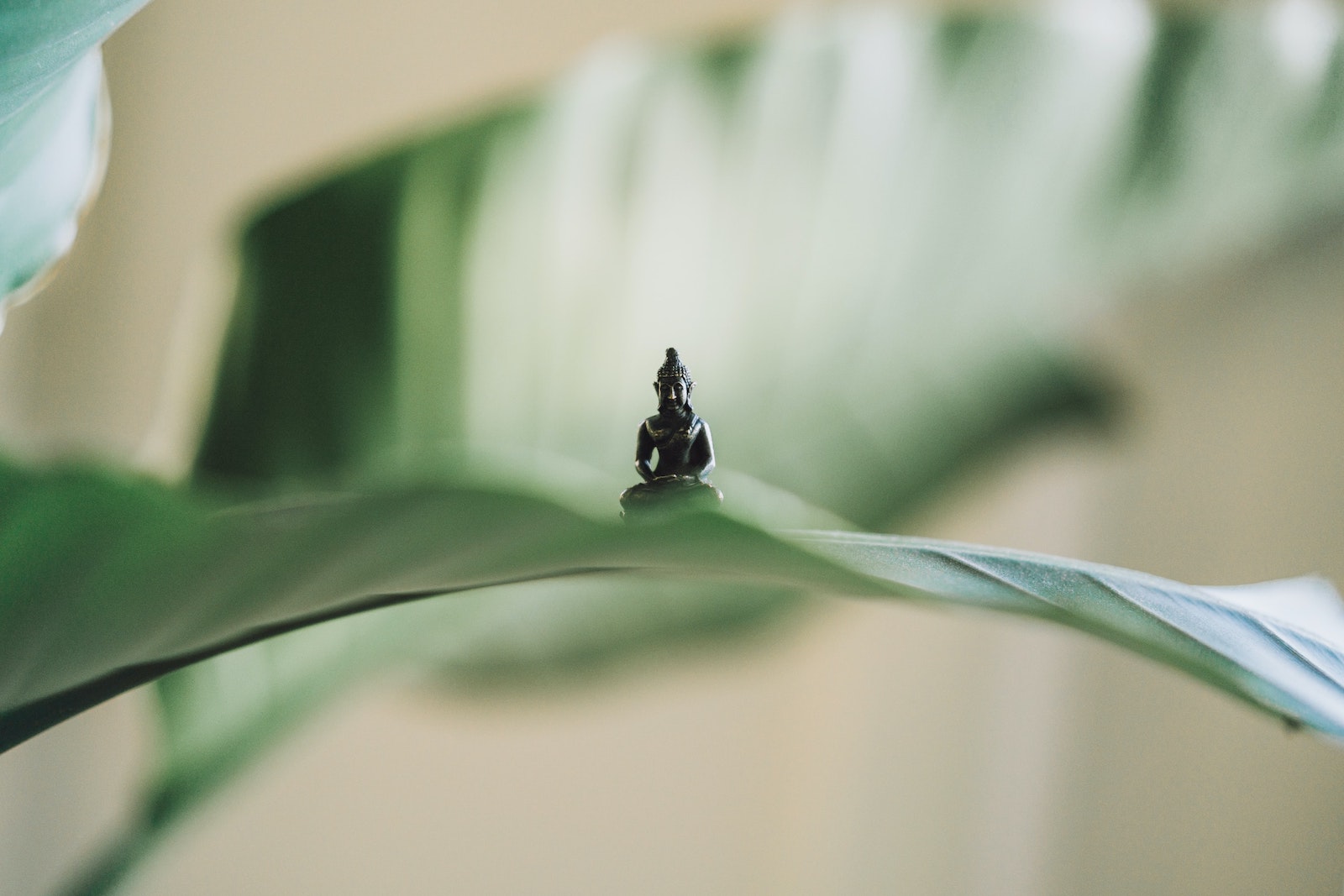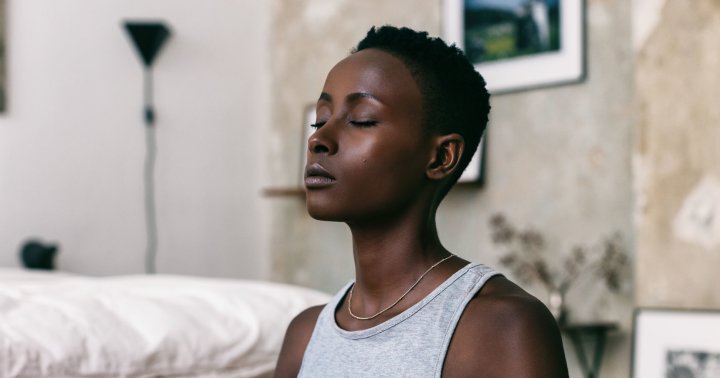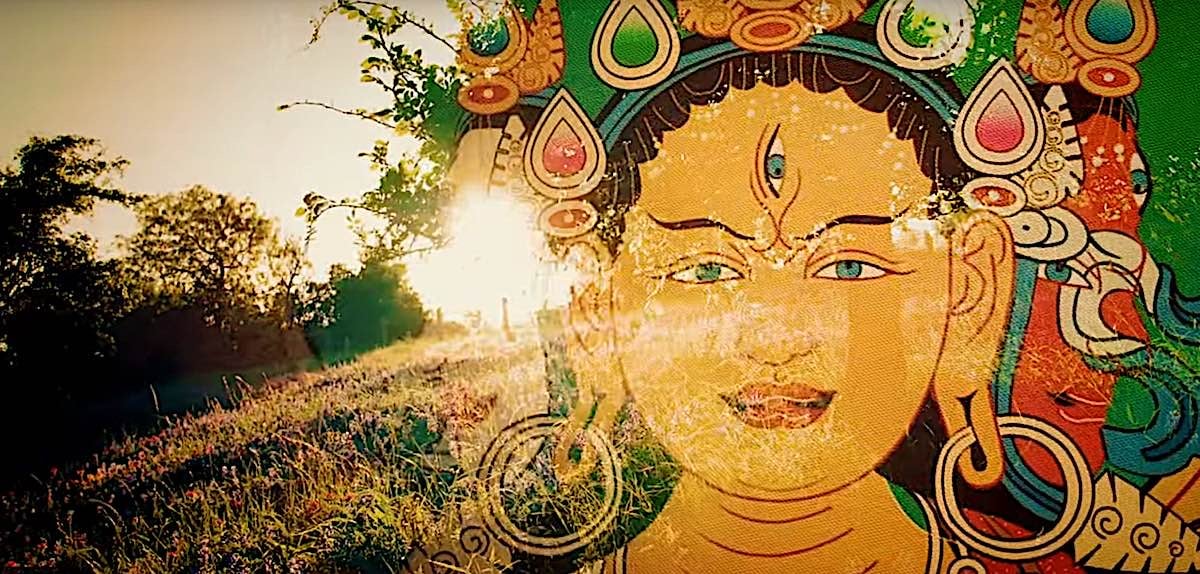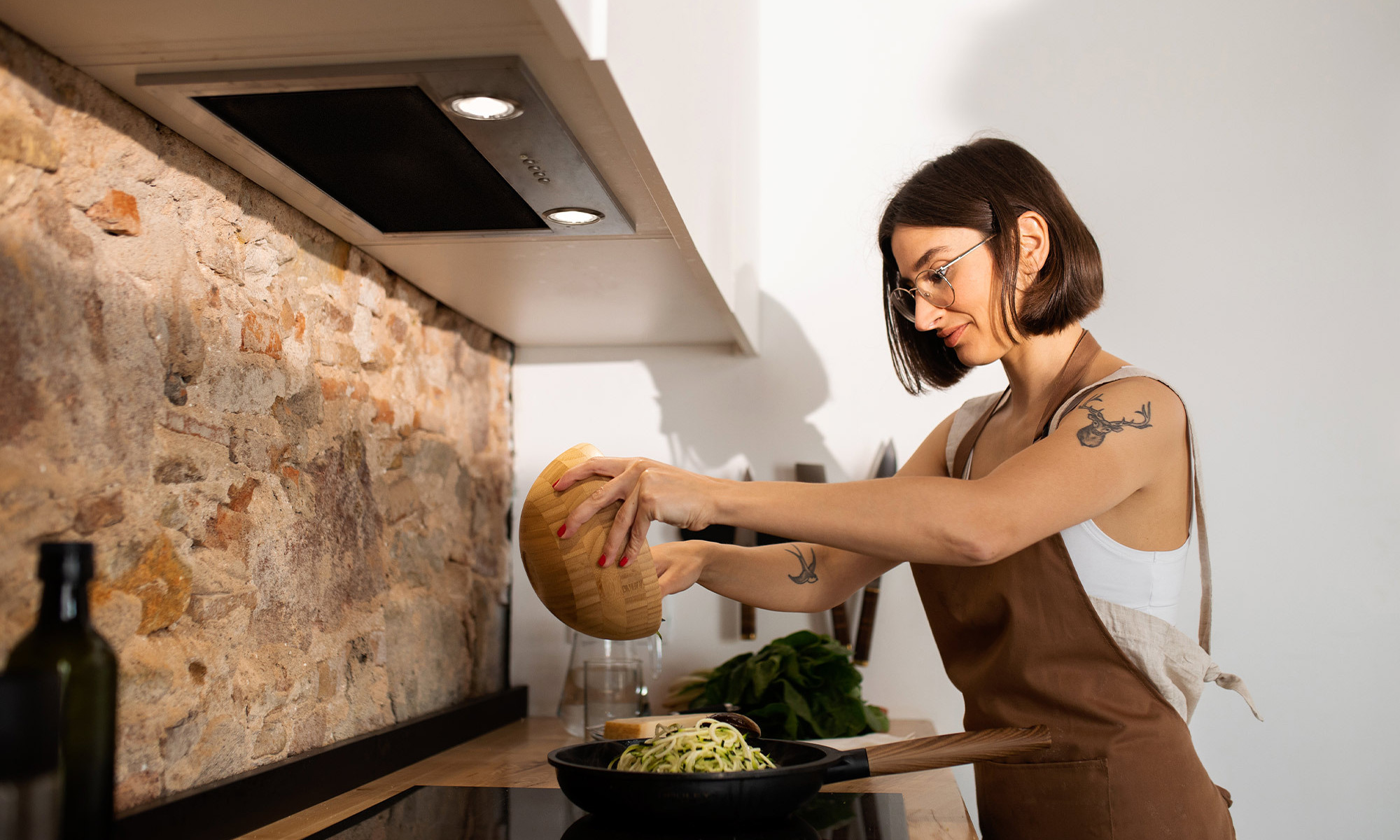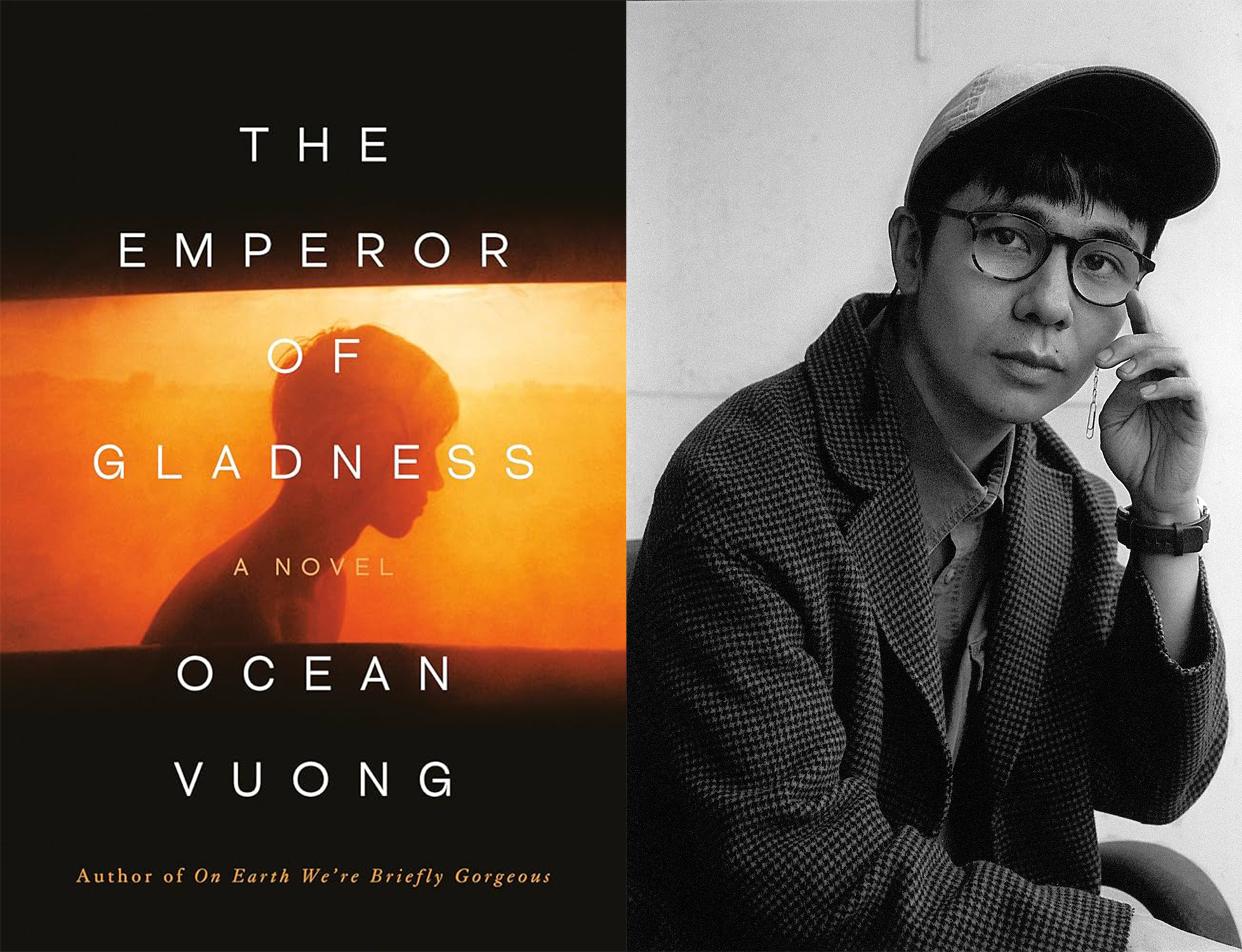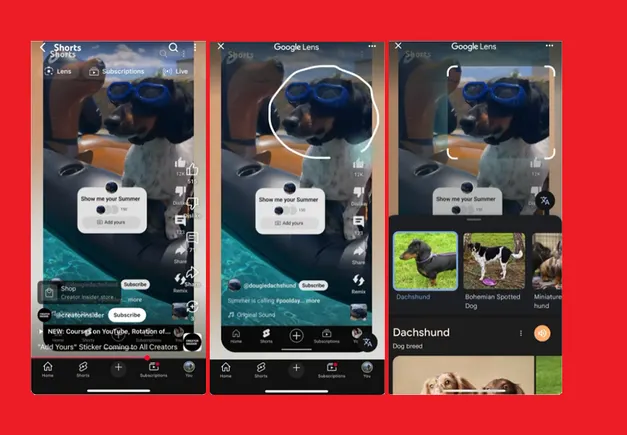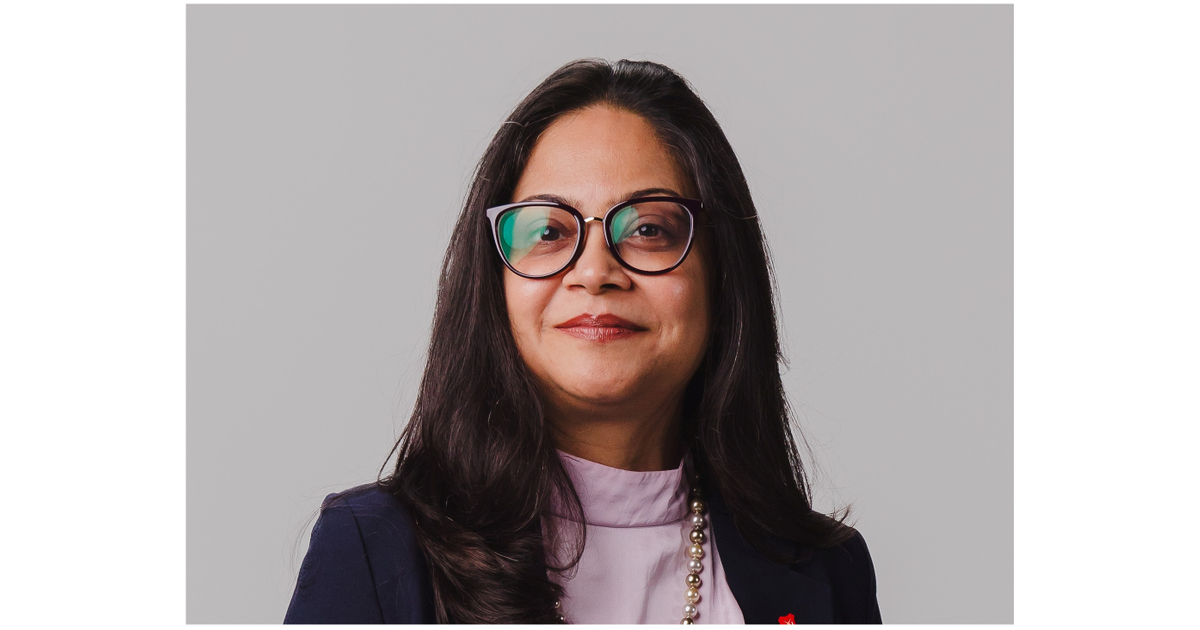A Life Cut Short but Lived Well
A Pure Land priest reflects on the life and death of her friend Michael Dunn, a compassionate climate activist The post A Life Cut Short but Lived Well appeared first on Tricycle: The Buddhist Review.
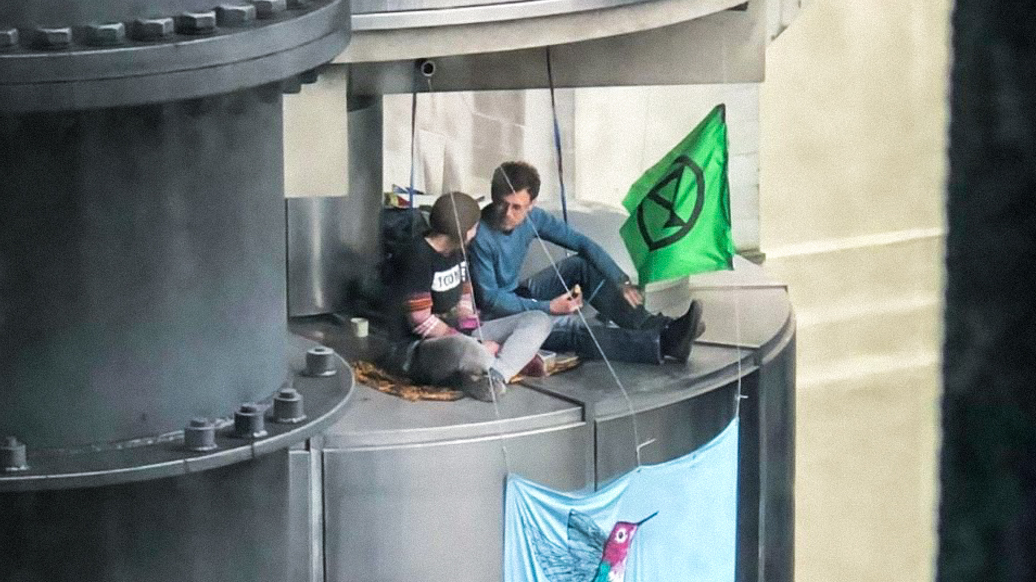
Personal Reflections Death & Dying
A Pure Land priest reflects on the life and death of her friend Michael Dunn, a compassionate climate activist
By Satya Robyn Mar 11, 2023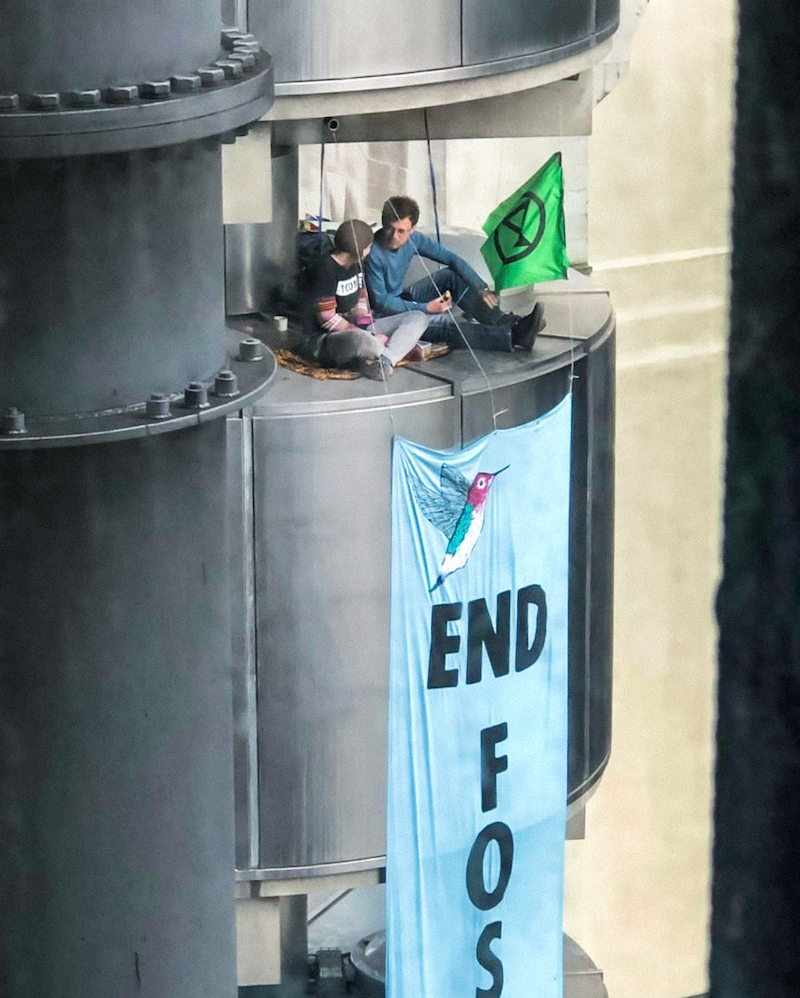 Photo courtesy the author
Photo courtesy the authorMy friend Michael died in late January at the age of 39. Two weeks prior, he and his partner Addie came to Buddhist practice for the first time at our temple in Malvern, UK. He shared that he had four months between his cancer diagnosis and his death. In the shadow of his shortened life, I have been asking myself what it means to live a good life. Is it necessary for us to have a spiritual practice or a spiritual dimension to our lives in order to live well? As a Pure Land Buddhist, I have also been wondering if Michael, having said the name of Amitabha Buddha during his single time at the temple, is now in Amitabha’s Pure Land. I will explore these questions by telling you about three moments in our brief friendship that I will never forget.
In the first moment, both of us were fully alive. I first met Michael through our local Extinction Rebellion (XR) group, and on that day we were taking part in an action in London. At 7 a.m., sixty people from XR shut down the Lloyd’s of London building. This financial institution insures 40 percent of the world’s energy, including some of the world’s most environmentally destructive fossil fuel projects such as tar sands pipelines and new oil and gas exploration. Somehow, Michael and Addie had managed to climb up the outside of a spiral silver staircase and installed themselves in one of the curved landings. They were maybe fifteen floors up. Once there, they unfurled their huge blue banner, “End Fossil Fuels Now”, to the cheers of all of us below. Michael climbed up and down the outside of the building five times, without a safety clip, to get the banner perfectly straight. It was seen by thousands of office workers that day.
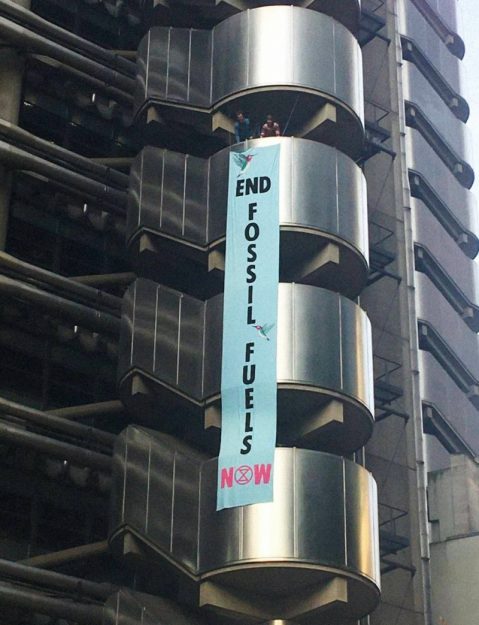
That afternoon, as the protest came to an end, they both began shimmying down the exterior roof of the stairwell—much more difficult than climbing up had been. I was there to meet them at the bottom as they made their final jump down. They were covered in black dirt and brimming with adrenaline. They were afraid that police were waiting to ambush and bundle them into a police van, so we walked as fast as we could away from the scene. I held their hands as we walked, and the energy surged and shook through Michael’s hand and into mine.
I had such profound gratitude for them both in that moment. They had done this dangerous thing because they loved our planet fiercely and because they were frightened (as I was) about the climate emergency. They could see that the traditional ways of affecting change weren’t working anywhere near quickly enough. They saw the need for non-violent civil disobedience, as it has been necessary and effective many times in the past. From where I was looking, what they did that day was a brave and selfless act. It was the act of bodhisattvas.
The second moment was a gift for me. It was a few hours after the most frightening activism that I had ever carried out, “Rebellion of One”. Alongside other XR rebels around the UK, I had designed and painted a placard that read: “I’m terrified starving people will resort to violence because of the climate crisis”. At a pre-appointed time and with a nod to my hidden support team, I walked slowly onto a busy city center road, my heart banging, and sat down. After half an hour of drivers shouting abuse at me and my rather unpleasant arrest, the policeman on the desk at the station took my details for the charge and then let me go straight home rather than putting me in a cell. When I walked out of the police station, Michael and another member of the group were there waiting for me. They had both volunteered for police station support—a vital role in actions that include arrests. Michael offered me a hug, and I received it gratefully. For the first time since the action began, I felt safe.
The third moment I’ll never forget was also a hug. It was at the end of our Buddhist practice a couple of weeks ago. We had practiced together in our shrine room—sitting in silence, chanting, reciting the refuges and precepts. We sat around the dining room table and drank tea. After a while, Addie and Michael answered my question of “How are you both?” by exchanging looks and then, with the babble of other voices surrounding us, Michael told me that he didn’t have long left. Before they went home, I gave them both a hug. When I hugged Michael I was too close to his bones. As we lingered for a moment, I felt like he was saying, “It is true: I am dying.” I hoped that he heard from my hug, “I know, and you are loved.”
The great sage Shinran, founder of the Jodo Shinshu school of Buddhism, taught that if people were to say the name of Amitabha Buddha even once they would be taken to the Pure Land when they died. There they would be provided with the perfect conditions for enlightenment, and then they could return to this world of suffering and work toward the liberation of all beings. What would this have meant to Michael, who recited the Buddha’s name alongside us in the shrine room but who (as far as I know) wasn’t aware of Amitabha’s vow? Did the small amount of practice he did that night bring him any comfort? If he’d had longer at the temple, would it have helped him? Did his saying of the nembutsu make any difference to what happened to him after his death?
I can’t answer those questions. What I do know is that, whether or not he had a formal spiritual practice, he was deeply connected to the Earth and he was inspired by her to take selfless action. What is spirituality for, if not to connect us to things that aren’t ourselves and inspire us to compassionate acts? I’m sure that, like all of us, he was burdened with karma and limited in various ways by his particular wounding. The Buddha will have seen that and understood.
Whether or not Michael knew it, the Buddha accepted and loved him just as he was. I witnessed only a tiny fragment of what Michael did and how he lived. From what I saw, I can say with confidence that Michael was a good man who lived a good life. I trust that the good from his compassionate actions will continue to ripple out.
I was happy to receive Michael and Addie into the temple. Their coming here in the first place was a kind of nembutsu in itself—a calling out for something, an asking for grace. I trust that we can turn toward the light at any time and that the light takes many forms. I trust that when we ask for help from the Buddhas, we receive it. I trust that there is a great benign unfolding, even if I don’t understand it much of the time, and that we are all playing our parts. Michael played his part perfectly—with or without his prostrations to our golden Buddha two weeks before he died. He played it by being a kind boyfriend and a fierce activist. He played it by offering hugs to people who needed them. He played it by being himself. I bow to him, and to all the good he left behind. May he be at peace.
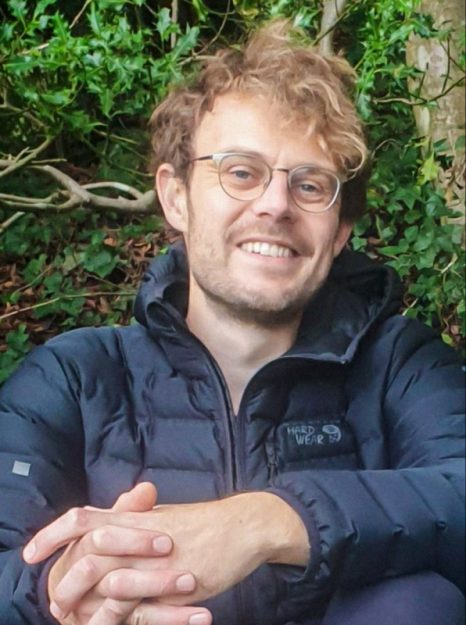
In memory of Michael Dunn (3/19/1983–1/24/2023)
![]()
Thank you for subscribing to Tricycle! As a nonprofit, we depend on readers like you to keep Buddhist teachings and practices widely available.
This article is only for Subscribers!
Subscribe now to read this article and get immediate access to everything else.
Already a subscriber? Log in.

 Troov
Troov 









